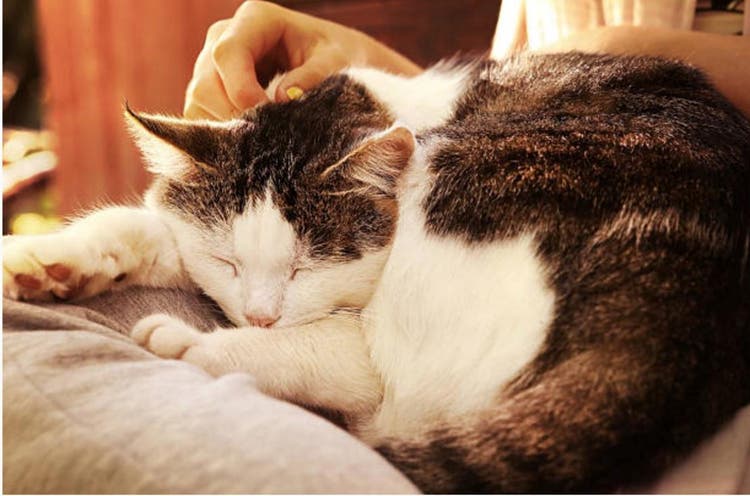Reviewed by Dr Abbie Lam DVM
Having your cat desexed is a personal choice for every owner, but knowing the facts about desexing can help make the decision easier.
Desexing cats is a common procedure that is widely encouraged by veterinarians in Australia. Animal shelters are overflowing with the offspring of inappropriate and uncontrolled breeding practices. An unfortunate reality of this is that great numbers of cats and kittens cannot be found a home and have to be put down.
Spaying or castrating is usually carried out at a young age, from as early as eight weeks of age, before males and females alike reach sexual maturity at approximately four months. The procedure offers benefits for both cats and their owners, but ultimately it is up to each cat owner to decide, responsibly, the best choice for their cat. Your state or territory may also enforce guidelines around when your pet must be desexed, so it is important to check what the regulations are in your area.
Most town and city councils reduce the cost of pet registration if your pet is desexed. They are tasked with monitoring of pet shops, boarding kennels, catteries, pounds, shelters, and pet breeding and training businesses to ensure they meet basic animal welfare standards required by law, such as ensuring the welfare of the female cat in limiting the number of litters she has to bear.
What is spaying vs castrating?
Desexing, also known as neutering, is a surgical procedure done under anaesthetic to sterilise a cat in order to prevent unwanted pregnancies in cats (and dogs). The procedure differs in name and process for males and females:
Castrating: Males are castrated, which means the testicles are removed.
Spaying: Females are spayed, which means the ovaries and usually the uterus are removed.
What are the benefits of desexing your cat?
Desexing your cat can be beneficial for you and your cat for several reasons:
- No unwanted pregnancies: Unless you are planning to breed from your cat, you probably don’t want a litter of kittens. It is extremely difficult to stop an intact cat from breeding – if they can get outside, sooner or later they will find a mate. Desexing them permanently prevents this risk.
- A calmer cat: Desexed cats tend to be much calmer. Castrated male cats are less aggressive with other cats and roam less. Spayed female cats will not wail as much and won’t gain lots of attention from eager tomcats searching for a new mate.
- A healthier cat: Desexed cats are less likely to contract diseases such as feline immunodeficiency virus (FIV) – the cat equivalent of HIV – spread by bites and mating behaviour. It also removes the risk of ovarian or testicular cancer.
- A cleaner home: Castrated males are less likely to spray or mark their territory in the home, as they’re not driven to look for a female mate.
What are the potential downsides of desexing your cat?
Not every cat owner will decide to have their cat desexed, usually for one of the following reasons:
It is permanent: A desexed cat will never reproduce. If you want to breed from your cat, then this would completely remove the option.
It may cause weight gain: Desexed cats may roam less, eat more and have a slightly reduced metabolic rate, which can cause weight gain. If this becomes an issue, try offering less food or switching up their diet that is more suitable for neutered cats, and encouraging exercise. If you’re concerned about your cat’s weight gain, speak with your vet.
The worry of surgery: While the surgical procedure is straightforward, some cat owners naturally worry about their cat going under general anaesthetic, especially when they’re young. Remember, this is a routine operation and the risk to your cat is extremely low.
Cost of the procedure: The cost of cat desexing can vary from vet practice to vet practice. Spaying usually costs a little more than castration. Your vet will be able to provide you with a quote and give you the advice you need. If you decide to adopt a rescue cat, they should have been desexed by the rescue centre.
When should you desex your cat?
While it is safe to desex a cat at any age, it is generally advised to have it done when they are no older than four months. Cats can become sexually active from as early asfour months. By deciding to spay or castrate your cat early, you are avoiding any unwanted pregnancies.
Is it painful for cats to get desexed?
Spaying and castrating are simple procedures vets perform regularly. Cats are given a general anaesthetic, so they feel no pain during surgery.
After surgery, they may feel some discomfort for a day or two, but your vet will offer pain medication to give to your cat. Kittens are usually back up and about within 1 week of the procedure.
Deciding whether to desex your cat is just one of many choices you’ll need to make about your cat’s care. Learn more about other essential tips for caring for your cat.



